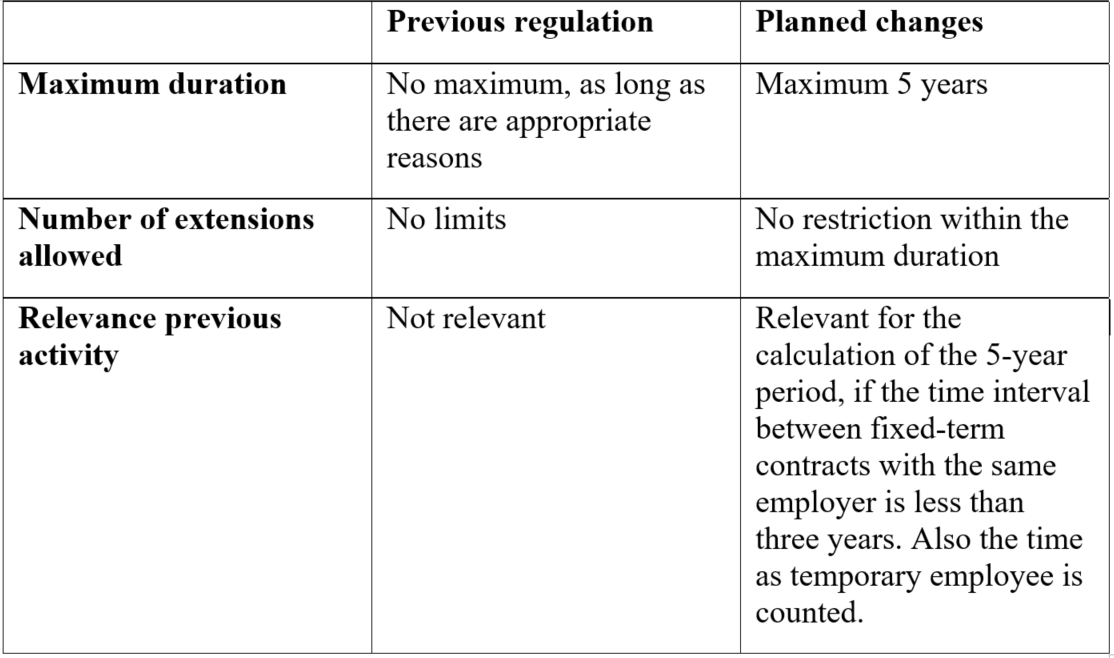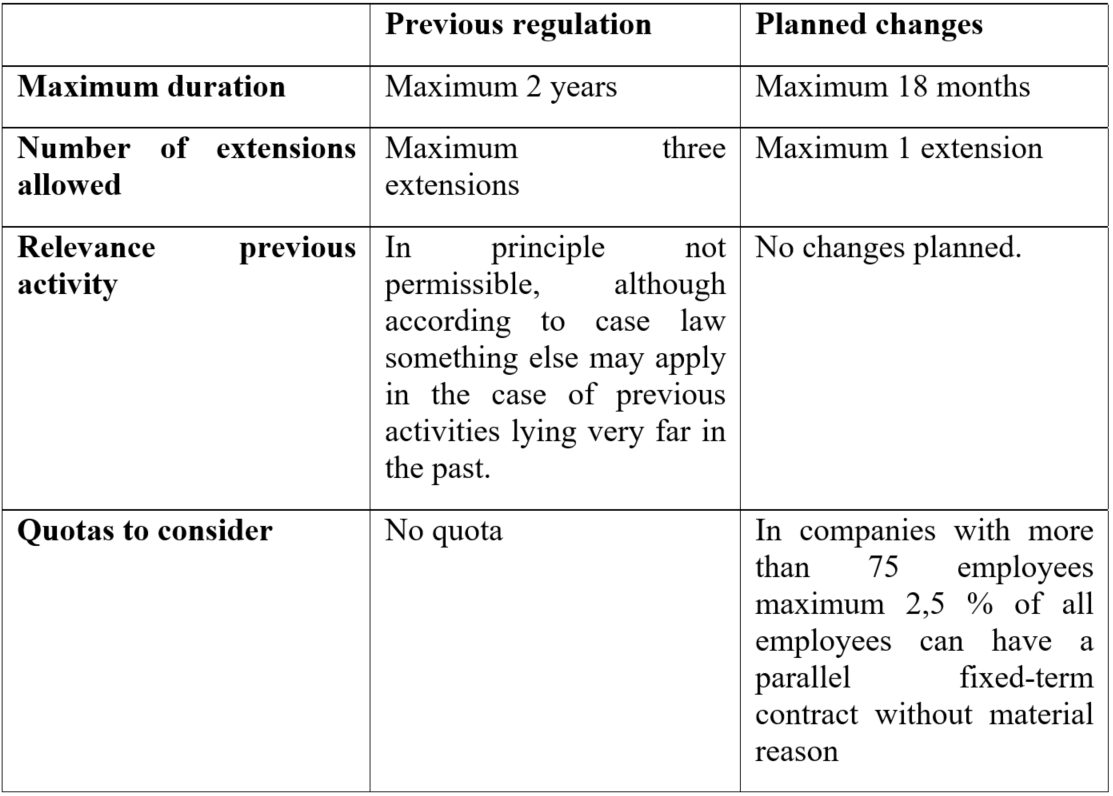I. Background
German
labour law differentiates between fixed-term employment on (sec. 14 (1) German Act on Part-Time Work and Fixed-Term Employment – "TzBfG") or without objective grounds for the fixed term (sec. 14 (2) German Act on Part-Time Work and Fixed-Term Employment – "TzBfG"). The latter is only permissible up to two years and for new hires. There is only a limited number of objective grounds for fixed-term contracts. However, when there are objective grounds under current law there is no maximum time limit for stringing together fixed-term contracts. As a result, theoretically, an employment relationship can be limited in time an unlimited number of times if there are appropriate reasons. For the ministry, employees with fixed-term contracts do not attain the desired level of job security and predictability. Because currently, according to the proposal, 37% of new hires are temporary (of which more than half have fixed-term contracts without objective grounds for the time limit), the ministry considers a further restriction to be necessary.
There are plans to restrict both the possibilities of fixed-term contracts without a material reason and fixed-term contracts with a material reason. However, it is questionable whether this will happen. Nevertheless, the draft bill is a serious first step towards reforming the law on fixed-term contracts. In this respect, the further course of action should be urgently observed.
II. The draft proposal
1. Stricter rules for fixed-term employment without objective grounds
In future, according to the draft proposal fixed-term employment without objective grounds is to be permissible for a period of only 18 months instead of the previous two years. Up to this total duration, the employer can only extend the duration once, not three times as under current law. While there are options to amend this by collective agreement, these are also restricted. In the case of a previous employment, a fixed-term contract without an objective reason remains inadmissible. In addition, there is a new quota regulation: According to the draft, larger employers with a workforce of regularly more than 75 employees may only employ a maximum of 2.5 per cent of their employees on fixed-term contracts without objective grounds for the time limit. This is likely to lead to greater complexity and increasing uncertainties.
2. Overall time limit for fixed-term employment on objective grounds
In addition, the proposal stipulates a maximum time limit of five years for fixed-term employment on objective grounds with the same employer, unless this was agreed in a court settlement or the objective ground lies in the nature of the work performed. Here, the calculation is also complicated: If the time interval between fixed-term contracts with the same employer is less than three years, the periods of employment are to be added up. Furthermore, the periods during which the employee only worked for the employer as a temporary worker are also to be included in the calculation - these periods are to be taken into account even if there was permanent employment with the hiring company. The less instructive case law on chain fixed-term employment would thus be obsolete, but new problems regarding the calculation would replace it..
In addition, one of the previous eight objective reasons according to which employees who are remunerated with budgetary funds can be employed on a fixed-term basis is no longer applicable.
3. Formal changes - citation requirement
It is also suggested that employment contracts should specify whether it is a fixed-term contract without a material reason. In this case, it should no longer be possible to rely on an objective reason. However, the draft still does not provide for the concrete naming of an objective reason. If the fixed-term is designated as having no objective reason, it can only be permissible in accordance with these requirements (in particular, taking into account the quota). If it is not mentioned, it must be a fixed-term contract with an objective reason - only on this basis can the justification be based.
III. Outlook
The proposal clarifies the ministry's intention to counter the mass use of fixed-term contracts more aggressively. In light of the upcoming federal elections, it remains open whether and to what extent the draft provisions will hold up in the legislative process. As far as the core content of the proposed rules is preserved, the additional restrictions will significantly affect recruitment practices in many sectors. It also has to be seen to what extent the draft will be adapted - in the current version, for example, the uncertainties as to how long a previous employment is relevant for a prohibition of a fixed-term contract remain.
IV. Overview of limits for fixed-term employment contracts under current law and planned changes:
1. Fixed-term contract with material reason (14 (1) German Act on Part-Time Work and Fixed-Term Employment)

2. Fixed-term contract without material reason (14 (2) German Act on Part-Time Work and Fixed-Term Employment):

We hope to give you a good overview of the current developments with these explanations. If you have any questions on the above-mentioned topic and on concrete effects and questions of organisation, please do not hesitate to contact our colleagues in our offices in Berlin, Düsseldorf, Munich and Cologne by telephone or e-mail.















